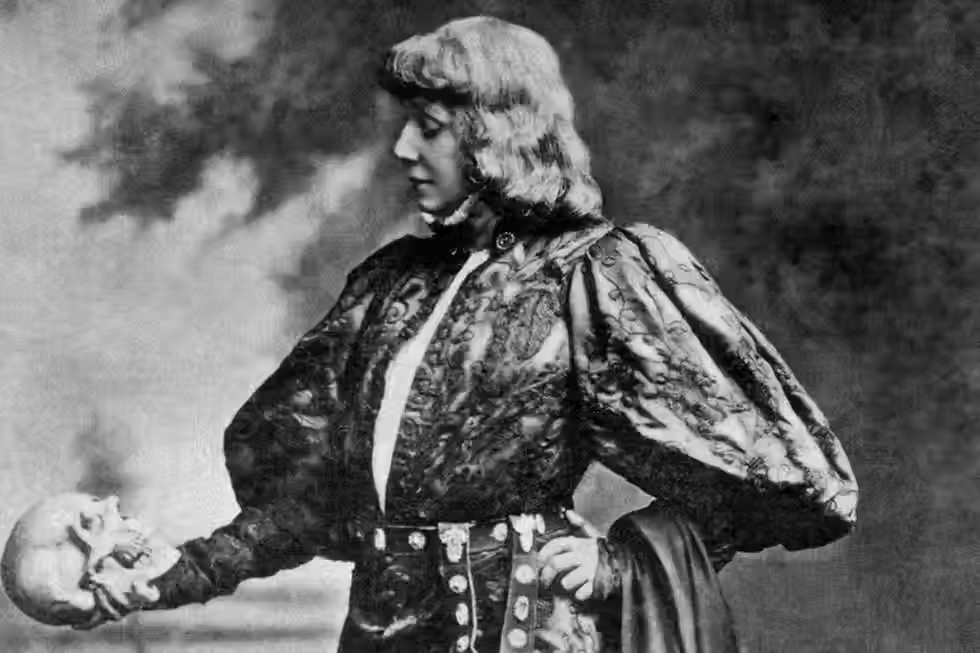Shakespeares Henry V
- M. W. Upham

- May 15, 2025
- 3 min read
Updated: Jun 20, 2025
When reading Henry V, I found it extremely interesting that the characters in Shakespeare’s Henry V are real people who have lived in history. It is not uncommon for historical events involving real people to be reimagined for modern society. However, there are often many inaccuracies that are sometimes forgiven, or unforgivable when considering history. Examples include “The Greatest Showman”, who was a slave owner, “Marie Antoinette 2006”, who was not a feminist girl boss, and “Pocahontas”, who was kidnapped from her home.
Unlike these Hollywood blockbusters, which were primarily looking for a quick cash grab, Shakespeare wrote “Henry V” out of passion for the subject. Whether his portrayal of the characters in Henry V is debated. The Shakespeare Resource Center states, “the prince-gone-wild character of Henry IV seems more of a popular tall tale than truth, and may have more to do with political differences between the crown prince and his father. The tennis ball scene is pure invention, and Henry's war with France likely had more to do with commercial interests and conflicts than anything else”. Though they also state, “On the whole, Shakespeare's Henry has to be viewed as a larger-than-life characterization solidly grounded in English history”.
Duty and honor are common yet powerful themes in many of Shakespeare’s works, and Henry V is no different. As I will with many others, I opted to watch a reenactment of Henry V. Shakespeare’s works were written as playwrights, and to truly appreciate them, I believe they should be viewed as such.
When I think of Duty and Honor, I think of Ely and Canterbury, who seemingly have none of it. Urging King Henry V to go to war so that the church can avoid paying money with a new law is the very definition of despicable. They seemly hold little regard for the lives that could be lost in war, and are only concerned with keeping their pockets full at the expense of England.
I think that King Henry is a common example of Duty and Honor. After his head is filled with ideas of 'the former lions of your blood', he is convinced that he has claim to the French Throne. Therefore, he must fight for it. As the young king charges off to battle, it is seen as honorable to fight and die for your country. Meanwhile, a plot is brewing to kill the young king.
We arrive at my favorite event of the story. Henry is aware that Cambridge, Scroop, and Grey are plotting against him. However, he gives the trio a chance to be forgiven. In my personal opinion, this was an honorable thing to do because it allowed his betrayers the chance to make amends. When Henry tells a story of a drunk man who insulted him, he asks the trio if he should be forgiven. The trio, drunk on power, advises that he should not dismiss small crimes or else he won’t be able to punish capital offenses. King Henry then reveals irrefutable proof of their plot to murder him, while the stooges beg for forgiveness. But why should he forgive them when they advised against it? The three traitors are poetically executed.
However, I think the best example of Duty and Honor lies not with King Henry V or any of the named characters. The best example of Duty and Honor lies with the people of England, specifically the soldiers. King Henry V is a very young king, ambitious, and easily fooled. Yet his soldiers follow him blindly as a show of love for their country, knowing they could die a frivolous death. I believe there exists no more honorable an act.
After meeting with Williams, King Henry V is forced to face the reality of the situation; the soldiers who fight do so out of duty, but their deaths should not be dismissed. They are still individuals with lives and families who will not so easily forget them. They are more than pawns on a chessboard. Being King holds many responsibilities, many of which King Henry V was not well equipped to handle, being so young and impressionable. So while King Henry V may have acted dishonorably through much of this play by charging into war without a second thought for his soldiers, he learns a valuable lesson that Duty and Honor are more than winning battles. For a King, it means caring about your subjects.
After the war has been won, King Henry V marries Princess Catherine from France with the hope that their union will create a peaceful future.
Works Cited
Shakespeare, William. Henry V, Folger Shakespeare Library, 1599,
Pressley, J. M. Shakespeare's King Henry V: Drama Versus History, Shakespeare Resource
Shakespeare, William, writer. HENRY V. Directed by Laurence Oliver, The Globe Playhouse,



Comments